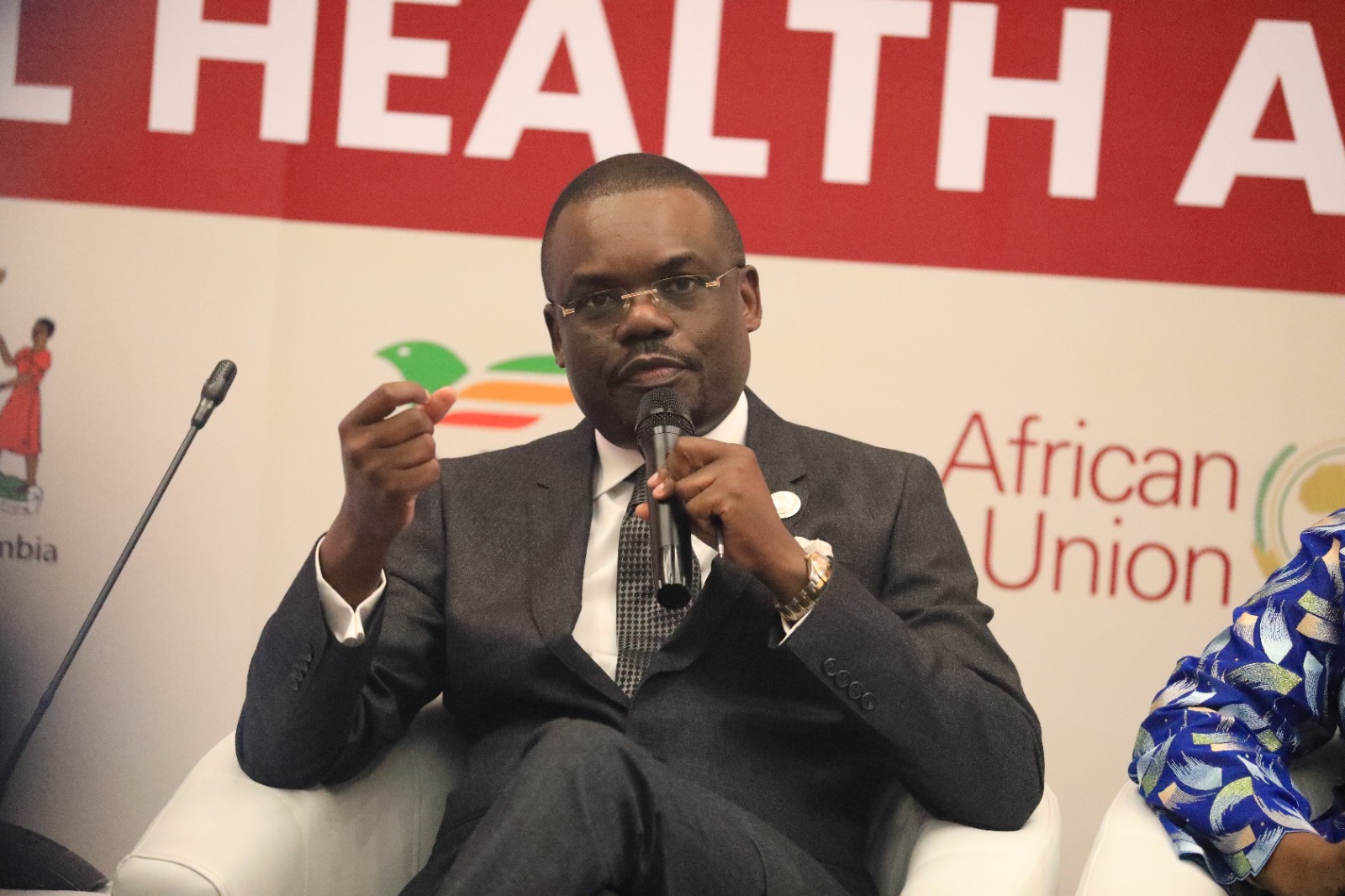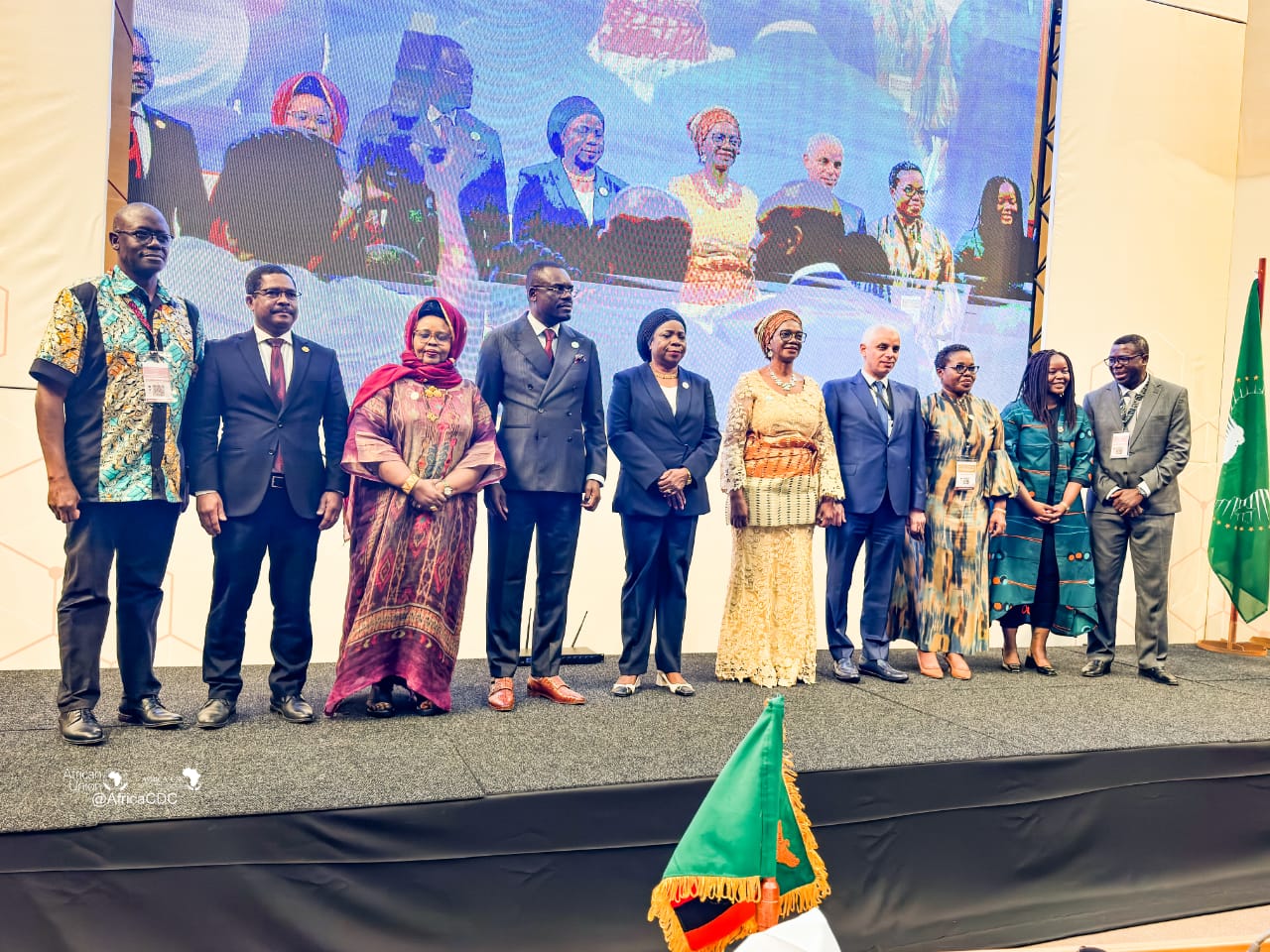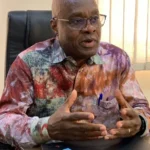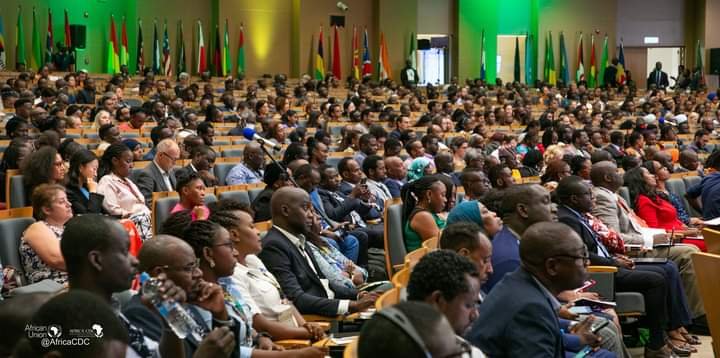For four days, African scientists, policymakers, healthcare workers, scholars, NGOs, civil societies and diverse stakeholders gathered in Lusaka, Zambia, for the International Conference on Public Health in Africa (CPHIA2023), to share experiences and find solutions towards safeguarding public health on the continent.
The CPHIA, hosted by the Africa Centres for Disease Control and Prevention (Africa CDC) and African Union, was inaugurated in 2021 during the COVID-19.
The CPHIA2023, which held from Nov. 27 to Nov. 30, had the theme: “Breaking Barriers: Repositioning Africa in the Global Health Architecture.”
In three years, the CPHIA has steadily gathered momentum to be a platform to share learnings, best practices, and experiences to advance public health outcomes.
It provides a unique African-led platform for leaders across the continent to reflect on lessons learned in health and science, and align on a way forward for creating more resilient health systems.
The CPHIA2023 had no fewer than 5,000 delegates from across the continent in person and about 30,000 participants joining various livestream channels.
Recognising the importance of the conference, President of the Republic of Zambia, Mr Hakainde Hichilema, said the conference was unique as it looked at health in a holistic way.
In his opening remarks, Dr Jean Kaseya, the Director-General of Africa CDC, explained that the theme was a prompter for Africans to think beyond the confines of traditional healthcare models.

Kaseya added that it was promoter for Africans to leverage new technologies and innovations to embrace equity and social justice principles and to foster robust collaboration.
“Breaking barriers go beyond traditional methods of healthcare delivery.
“It challenges us to redefine our position in the global health architecture for a healthier and more prosperous continent,” Kaseya said.
He also highlighted the significance of strong leadership and importance of financing the health sector and called on countries to prioritise financing their emergency preparedness programmes before looking for funding from donors.
Several topics including those on Pandemic Preparedness and Resilient Financing Mechanisms for Africa, Transformative Leadership for Health in Africa, Mental Health, Sexual and Reproductive Health Rights (SRHR), Antimicrobial Resistance, Digital Health, Health Financing and Climate Change, among others were discussed.
Discussions and presentations on pandemic preparedness and resilience financing, identified that Africa had a significant disease surveillance gap.
It was agreed that resilient health systems must be built collaboratively and must focus on the needs of communities.
On fostering African-led innovation and advancing local production and vaccines diagnostics and therapeutics, a strong takeaway was that Africa manufactured less than one per cent of vaccines, and less than five per cent of diagnostics used on the continent.
Consequently, Africa was urged to produce its own medicines, diagnostics and vaccines to strengthen the health security and self-sufficiency initiatives such as the partnership for African vaccine manufacturers, and African in the establishment of the African Medicines Agency.
Discussions on Universal Health Coverage (UHC) in Africa to strengthen equitable health systems revealed that 90 per cent of Africans pay out of pocket spending when accessing health.
It identified that it was imperative to increase UHC financing through food procurement mechanisms, expanded health insurance schemes, public private and partnerships, among others.
On women, they admitted that there must be an equal space and authority for women to make health decisions.
According to them, laws and commitments are not enough and investments to see and realise this change should be available.
This will include empowering women and girls through education and economic opportunities, protecting and promoting SRHR and improving the quality of care.
Goodness Odey, a public health practitioner and researcher, emphasised the importance of self care as regards to SRHR.
Safeguarding Africa’s health security, health emergencies, biosecurity, climate change, and the need for a multi-sectoral response mechanism also came up strongly.
This was important as climate change poses “the biggest health threat facing the 21st century.”
“Climate induced natural disasters are driving disease outbreaks, and there’s an increase in zoonotic diseases.
“The One Health approach is a vital and effective approach for the management of health emergencies, building climate resilient health systems we need transformative adaptation towards resilience.”
Sessions at CPHIA2023 around infectious diseases such as HIV, TB, malaria, and NTDs, highlighted that in spite of the some of the setbacks faced with COVID-19 access to tools, antimicrobials vaccines and diagnostics, were vital to accelerate progress.
As part of solutions, the development of vaccines and preventative measures such as WASH would be essential measures to reduce some of these disease burdens, even as Antimicrobial Resistance (AMR) has become one of the top health threats in Africa.
In all, good state of mental health alongside peace are inseparable from physical well-being, hence mental health experts including Dr Naeem Dalal, Advisor, Non-communicable Diseases, Injuries, and Mental Health for AfricaCDC, advocated policy changes, where mental health are in sync with current realities that we live in.
Most importantly, people should seek help and counselling when they notice stressors, triggers as required.
The WHO Regional Director for Africa, Dr Matshidiso Moeti, said though there had be limitations, some progress were recorded in the area of emergency response during the pandemic.
However, she said the challenges were not yet over and stressed on the importance of collaboration in breaking the barriers, “as our strength lies in unified action.”
In agreement, Dr Merawi Tegegne, Head of Surveillance and Disease Intelligence at Africa CDC, said there was the need for collaborative efforts to strengthen healthcare systems as the African continent was still vulnerable to infectious diseases and outbreaks.
According to him, strengthening healthcare systems and promoting resilience will help to address most disease threats.
The News Agency of Nigeria (NAN) reports that CPHIA2023 featured prominence initiatives to make 2023 edition unique.
For instance, the AfricaCDC signed with the U.S. government, the New Joint Action Plan that will lead Africa for a number of years on the way to strengthen and prepare our continent to be better informed for outbreaks.
Also, the Africa CDC and WHO Joint Emergency Preparedness and Response action plan will help countries detect, monitor and respond swiftly to health threats.
AfricaCDC and Mastercard Foundation Project entered a Phase 2 of their partnership on the Saving Lives and Livelihoods initiative.
Also, the partnership with the Susan Thompson Buffett Foundation focusing on primary care and sexual and reproductive health rights by using community health workers was sealed.
In addition, the CPHIA2023 saw the inaugural six-month media fellowship on science journalism, whereby 45 journalists were sponsored from around Africa to come and join the event.
The conference presented opportunities for young people to come and share their experiences.
Two awards were given out for poster and oral presentations for researches.
In it all, the CPHIA Lifetime Achievement Award in Public Health was given to the WHO Director-General, Dr Tedros Ghebreyesus.
With representation from South America, North America, Europe, Asia, the Middle East, as well as Australia and Oceania, the conference came to a close on Nov. 30.

Delighted, Zambia’s Health Minister, Sylvia Masebo, noted that the conference had provided a unique platform for African leaders to define common public health problems affecting Africa.
“We also all learn public health lessons from each other and to find finance and implement public health interventions to improve the health security of the continents,’’ she said.
In summary, the Vice-President of Zambia, Mutale Nalumango, observed that various platforms and roundtable discussions during the conference highlighted the complexities and challenges that Africa faces in the area of public health and proffered possible solutions to them.
“It is great fun that the experts attending this conference explored many areas in public health including infectious diseases, non-communicable diseases, and emerging and reemerging diseases affecting the world, the continent through our public health challenges.
“Our public health challenges are many and diverse; but we remain hopeful that there is an opportunity for innovation, collaboration and lasting change”.
While the conversations around health in Africa are unending, CPHIA continues in 2024 in Rabat, Morocco.(NANFeatures)
**If used please credit the WRITER and NEWS AGENCY OF NIGERIA
Edited by Chinyere Joel-Nwokeoma











